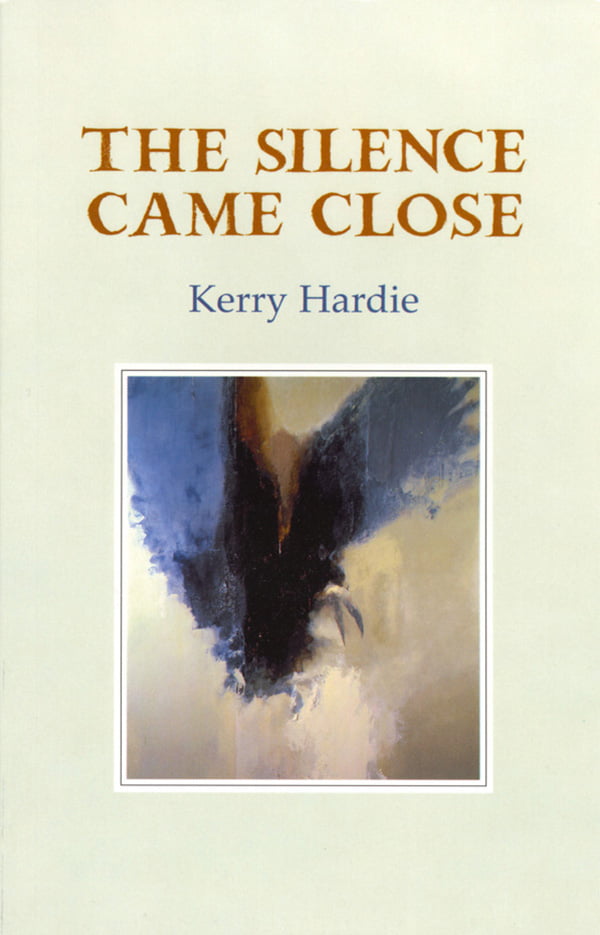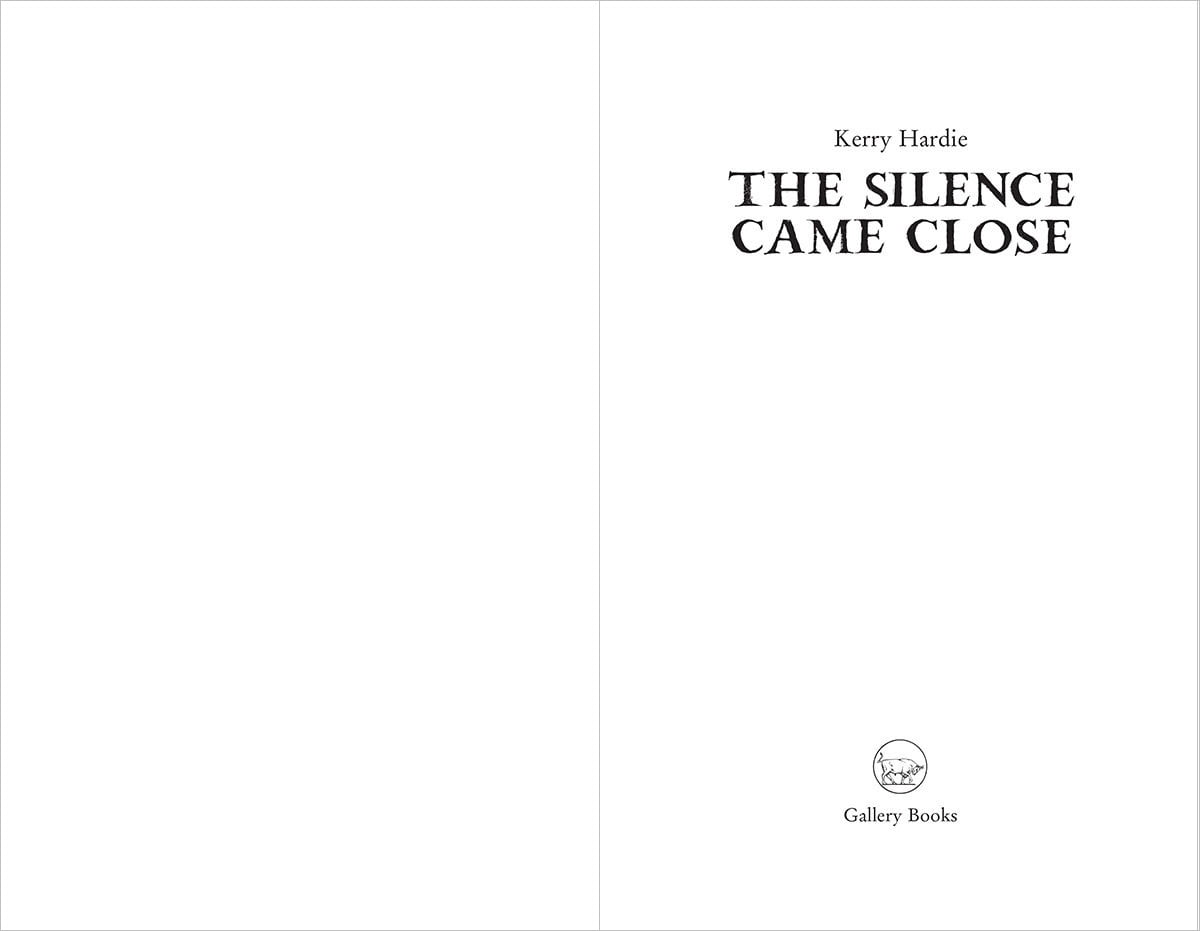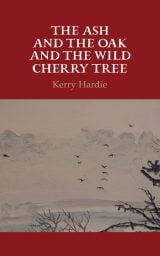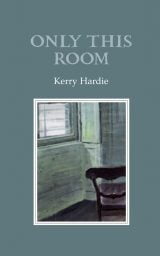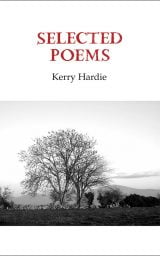The Silence Came Close continues Kerry Hardie’s act of attention to ‘the way things are’ in places as familiar as Ireland and as new and exotic as the Pyrenees, Eastern Europe, Australia and China. Because their lessons are so hard-won, ‘maybe there’s more to life than sickness’, the poems in this book intensify the mood of upbeat celebration.
‘The Silence Came Close contains many fine poems in which the author reveals her closeness to the natural world, her love of landscape and her affinity with nature’s creatures. There is often a sense of stillness in her lyrical verses, awareness of the spirituality inherent in the animal and material world . . . This is another fine collection of sensitive verse from the author, which will enchant her many readers.’ — Hugh McFadden, Books Ireland
‘Kerry Hardie’s fourth collection reverberates with small celebrations of life and hope and neighbourliness — these poems are positive and light in timbre and they radiate a vision of little victories stacked against all the greater hardships of the world . . . Hardie builds up the overall picture through the layers of this collection. There is a richness and a colour which operates to create texture and a poetic landscape as each layer adds new vision, and new vistas to the last. The book builds its epiphanies slowly through each of the five sections.’ — Nigel McLoughlin, Fortnight
Kerry Hardie writes about the here and now, the everyday and the ordinary in an authentic lyric voice. She speaks of God in our secular age without unease or embarrassment. This deeply spiritual book [The Sky Didn’t Fall] is deceptively immediate and it yields its mystery and depth in each rereading’
— Judges’ citation, Hartnett Award for Poetry 2005
‘. . . humane, generous . . . This substantial offering has five sections . . . her sharply observant, intimate persona engages us with direct, economical language and understated lyrical rhythms. . . . readers become fascinated companions as scenes and aperçus unfold, quietly, fatefully.’
— James J. McAuley, The Irish Times
This is Kerry Hardie’s fourth collection of verse and it maintains the high standard that was apparent in her first volume, A Furious Place (1996), which was published in the year that she won the UK National Poetry Award, justafter she had won a Hennessy Award here in Ireland.
Since then, she has consolidated herreputation as a poet, jointly winning the Michael Hartnett Award for Poetry with her third collection, The Sky Didn’t Fall (2003). She has also written two well-received novels, Hannie Bennett’s Winter Marriage (2000), and The Bird
Woman (2006).
Kerry Hardie was born in Singapore, but grew up in Co. Down and lived there during some of the most violent years of the troubles, working for the BBC as a researcher and radio interviewer during the 1970S. For some time now she has lived in Co. Kilkenny with her husband, the writer and former TV executive Sean Hardie.
Speaking of her time in the North, she has said: “Through my job I had access to situations and people I might not otherwise have known. I became fascinated with people who found themselves in a hard place and with how they reacted to this place. Some people adapted astonishingly fast to their new realities, but others spent their energies resisting and could only change to meet them when they had in some way been broken by them.
“Later, after I’d married and left Northern Ireland, I too
found myself, through sickness, in a hard place (she suffered from ME). I spent more than five years in bed and many more when I was only well enough to be up for a few hours a day. I too resisted and was broken by the experience, and it was only very gradually that I began to realise thatacceptance was my only option. I am much better now, but exhaustion and pain are still fairly constant companions.”
The Silence Came Close contains many fine poems in which
the author reveals her closeness to the natural world, her love of landscape and her affinity with nature’s creatures.
There is often a sense of stillness in her lyrical verses, awareness of the spirituality inherent in the animal and material world — as in the verse entitled ‘Late May’:
The dew falling
and the night falling
and the lambs crying
and the trees standing
proud and tender
in the still, cold air.
Or again, in ‘The Birch Tree’, one of the first poems in the collection:
A small perfect tree
its leaves green and gold
standing alone
in the pasture.
I sit in the dew-soaked grass,
sit in the stillness,
watching its papered leaves
untie and fall.
Such pared-down language is almost Beckettian in its sparseness, but without the self-conscious irony and self-mocking angst of that famous playwright. The delight in landscape, its colour and its ‘thereness’, reflects, perhaps, an escape from the fractious contemporary society and the world of getting and spending.
Her sense of immanence in nature can be detected in many of the lyrics describing landscape: she seems to be aware of the spiritual paradox of God’s presence even in
the apparent invisibility of the divine. She is one of the few contemporary poets in this part of the world who name-checks God. A verse from an earlier collection, The Sky Didn’t Fall, on the death of her father, has these lines:
Now the year
creeps towards March.
Damp days, grass springing.
The poplars’ bare branches
are fruited with starlings and thrushes.
The world is the body of God.
It is a spiritual sensibility, although it is more orthodox than pantheistic. But her themes are not all ethereal: witness the verse ‘In Berne’, which is a paean to the sheer physicality of a young woman’s body, fleshy, with a head of thick hair, and ‘an arse that sways’: the older woman remembering how she could feel her own breasts ‘heavy in her hands’ — a very feminine poem.
The joy of a convalescent who is able to go back out into the great outdoors is evident in the verse ‘On Not Visiting My Aunt in Hospital’, as is honesty about the author’s motives:
Now I’m out of bed once again. I could drive,
but instead I’m here
in the poplars’ rustling shade.
The mountains are blue,
the wind’s in the trees, the bees
are bumping about in the bells of the flowers . . .
A lovely last line, that. This is another fine collection of sensitive verse from the author, which will enchant her many readers.
— Hugh McFadden, Books Ireland

